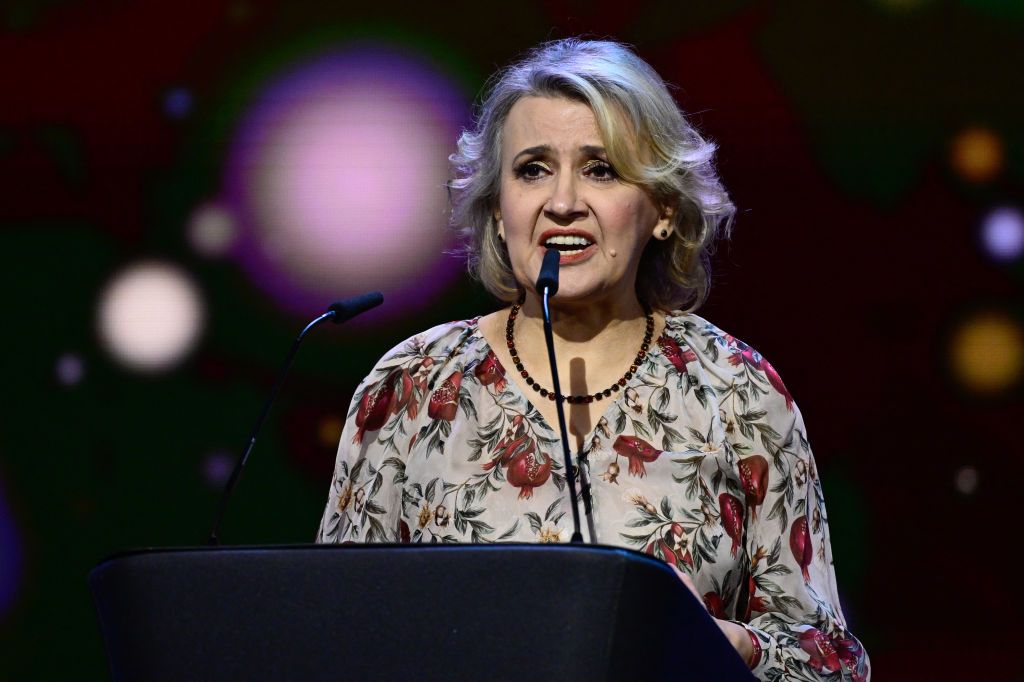Publishing house of Harvard’s Ukrainian Research Institute latest target of Trump’s federal budget cuts

Harvard University campus in Cambridge, Massachusetts, U.S., on Dec. 12, 2023. (Mel Musto / Bloomberg via Getty Images)
The future of Harvard’s Ukrainian Research Institute (HURI) publishing program is in jeopardy, as it has become the latest target of sweeping grant cuts under the administration of U.S. President Donald Trump.
The National Endowment for the Humanities (NEH), an independent U.S. federal agency, informed HURI that there was “reasonable cause to terminate (their) grant in light of the fact that the NEH is repurposing its funding allocations in a new direction in furtherance of the President’s agenda,” Oleh Kotsyuba, director of publications at HURI, wrote on Facebook on April 3.
Founded in 1973, the Ukrainian Research Institute at Harvard University is dedicated to cultivating new generations of scholars in Ukrainian history, language, and culture.
Over the past three and a half years, its publishing program has taken a leading role in translating both classic and contemporary works of Ukrainian literature. This endeavor has gained heightened urgency and global significance in the wake of Russia’s full-scale invasion in 2022, which is the latest chapter in a centuries-long Russian campaign to destroy Ukrainian culture and national sovereignty.
“(The work that we do) has helped me get through very dark times after Russia attacked Ukraine, knowing that these books would help educate the world about Ukraine and bring it closer to people,” Kotsyuba told the Kyiv Independent.
Now, that work is at risk. The loss of federal funding places the imminent publication of several books in limbo — and raises broader concerns about the future of cultural and academic initiatives under Trump’s administration.
Multifaceted Ukrainian literature
Since the start of their work three and a half years ago, HURI has published 14 books by Ukrainian authors in translation.
“My main goal with this series has been to show how diverse, multifaceted, rich, and self-sufficient Ukrainian literature is — and how Ukrainian authors have always focused on ethical issues in their works,” Kotsyuba said.
The grant from the National Endowment for the Humanities, which was just under $200,000, would have enabled HURI to showcase classic Ukrainian literature through a series of book publications beyond the long shadow of Russian imperial narratives.

“The project that I was most excited about was an anthology of Ukrainian-Jewish poetry, edited by Ostap Kin,” Kotsyuba said.
“Because we won't be able to hire an editor, we may have to postpone the publication of this important book — although we'll do everything in our power to prevent that from happening.”
Other planned publications included Uilleam Blacker’s translation of 20th-century Ukrainian poet and prose writer Maik Yohansen’s experimental novel “Dr. Leonardo’s Journey to Sloboda Switzerland with his Future Lover, the Beautiful Alcesta.”
Yohansen was a prominent figure of Ukraine’s literary avant-garde in the 1920s. In 1937, he was arrested and executed by the Soviet secret police for taking a stand against the regime’s targeted repression of the Ukrainian intelligentsia.
HURI also planned to release more of 19th-century Ukrainian author Lesia Ukrainka’s work with the support of the NEH grant, namely “The Boyar’s Wife” and “The Blue Rose,” according to Kotsyuba.
“These books could have filled gaps, made previously unknown works available, and introduced more voices from Ukraine.”
"The Boyar's Wife" follows a Ukrainian woman married to a nobleman in Moscow as she struggles with Russians' different mentality and customs and longs for her homeland.
“The Blue Rose” explores the tension between dreams and reality as a young woman in love struggles to break free from society’s traditional constraints.
Ukrainka was not only the foremost feminist voice in Ukrainian literature but also a powerful emblem of Ukrainian national identity and cultural resistance against Russian imperialism. Through her work, Ukrainka positioned Ukrainian literature within the broader currents of European intellectual and philosophical thought.
“These books could have filled gaps, made previously unknown works available, and introduced more voices from Ukraine. They are vital in broadening the (global) understanding of Ukraine and its culture,” Ostap Kin told the Kyiv Independent.
A larger, worrying trend
The funding cuts impacting HURI are part of a broader trend that has accelerated since the beginning of Trump's second term in January.
In late March, the U.S. State Department informed Congress of plans to dismantle the U.S. Agency for International Development (USAID), redistributing some of its functions under its direct jurisdiction.
This move followed the announcement of significant cuts to USAID, which has long been a critical source of support for civic, health, and cultural initiatives, not just in Ukraine but around the world.
“We are reorienting our foreign assistance programs to align directly with what is best for the United States and our citizens,” U.S. Secretary of State Marco Rubio claimed in a post on X on March 28.
In the wake of these setbacks, organizations like HURI are turning to their supporters for help.
In his Facebook post about the NEH funding cuts, Kotsyuba asked those with the financial means to support the publication program and encouraged both university and local libraries to purchase their books. He also stressed the importance of spreading awareness about the vital work they do.
“We will continue doing what we can to the best of our ability given the resources that we have,” Kotsyuba said.
“But — over three years into Russia's war — it will be a lot more difficult.”
Note from the author:
Hey there, it's Kate Tsurkan, thanks for reading my latest article. Learning that publishing Ukrainian literature in translation doesn't "align" with Trump's agenda was just the latest absurd and sad news to come out of my native U.S., and so I just had to write about it. I hope you learned about the work of this great publishing house and the important work they do. If you like reading this sort of thing, please consider becoming a member of the Kyiv Independent.











